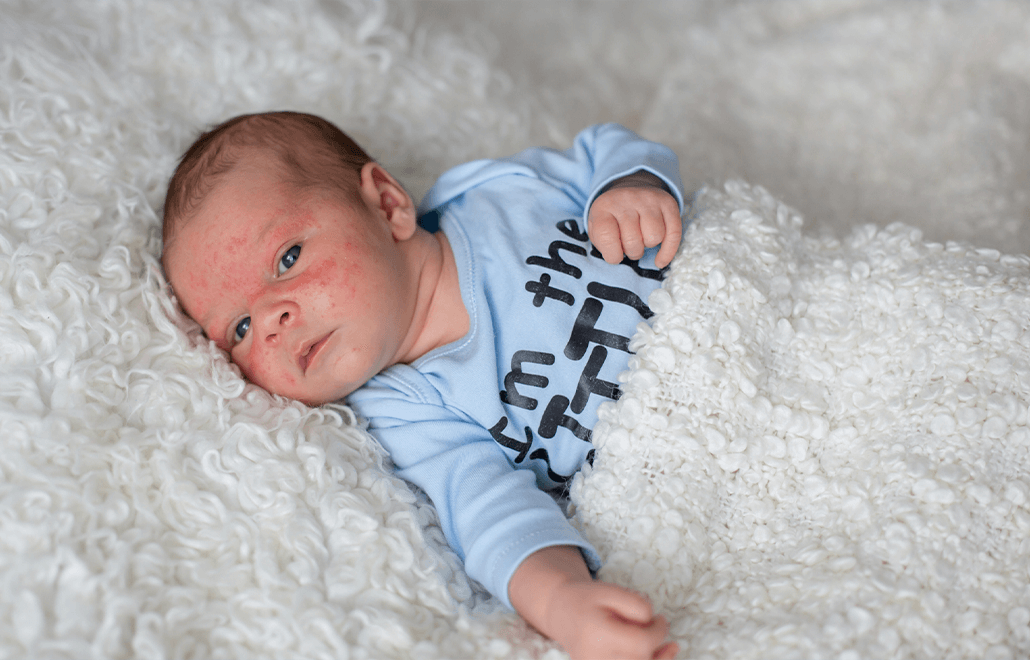
08 May What To Know About Newborn And Infant Acne
Welcoming a newborn into the world is a joyous occasion, but it can also bring about concerns for parents, especially when they notice skin issues like acne. While acne is typically associated with adolescence, it’s not uncommon for newborns and infants to develop acne-like bumps on their delicate skin. In this blog, we’ll explore the causes, characteristics, and treatment options for newborn and infant acne to help parents better understand and manage this common condition.
Causes of Newborn and Infant Acne:
- Maternal Hormones: During pregnancy, maternal hormones can cross the placenta and stimulate the baby’s oil glands, leading to the development of acne-like bumps shortly after birth. This type of acne, known as neonatal acne, typically appears within the first few weeks of life and may persist for several months.
- Blocked Hair Follicles: In some cases, newborn acne may be caused by blocked hair follicles or pores, resulting in tiny white or yellow bumps on the baby’s face.
- Irritation: Certain factors such as harsh fabrics, detergents, or skincare products can irritate the baby’s skin, leading to inflammation and the appearance of acne-like bumps.
- Milia: Milia are tiny white bumps that commonly appear on the nose, cheeks, or chin of newborns. They are caused by trapped skin cells and typically resolve on their own within a few weeks.
Characteristics of Newborn and Infant Acne:
Newborn and infant acne may present in different forms, including:
- Small red or white bumps on the baby’s face, particularly on the cheeks, forehead, and chin.
- Pimples or pustules resembling traditional acne lesions.
- Milia, which are small white bumps usually found on the nose, cheeks, or chin.
Treatment Options for Newborn and Infant Acne:
- Gentle Cleansing: Wash your baby’s face with lukewarm water and a mild baby soap or cleanser once a day to remove excess oil and debris. Avoid using harsh scrubbing or rubbing motions, as this can further irritate the skin.
- Avoid Harsh Products: Steer clear of adult acne treatments or skincare products containing harsh chemicals or ingredients that may be too harsh for your baby’s delicate skin.
- Patience: In most cases, newborn and infant acne will resolve on its own without any treatment. Be patient and allow the acne to run its course, as intervening with excessive skincare products may do more harm than good.
- Consult a Pediatrician: If you have concerns about your baby’s skin or if the acne seems severe or persistent, consult your pediatrician for guidance and recommendations. They can provide personalized advice and may recommend gentle skincare products or topical treatments if necessary.
Newborn and infant acne is a common skin condition that typically resolves on its own with time. By understanding the causes, characteristics, and treatment options for newborn and infant acne, parents can feel more confident in managing this temporary skin issue. Remember to practice gentle skincare routines, avoid harsh products, and consult a pediatrician if you have any concerns about your baby’s skin health.
At Continuum Pediatrics, we are committed to providing comprehensive care for your child’s health and well-being, including addressing common concerns like newborn and infant acne. Contact us today to schedule an appointment or learn more about our pediatric services.

